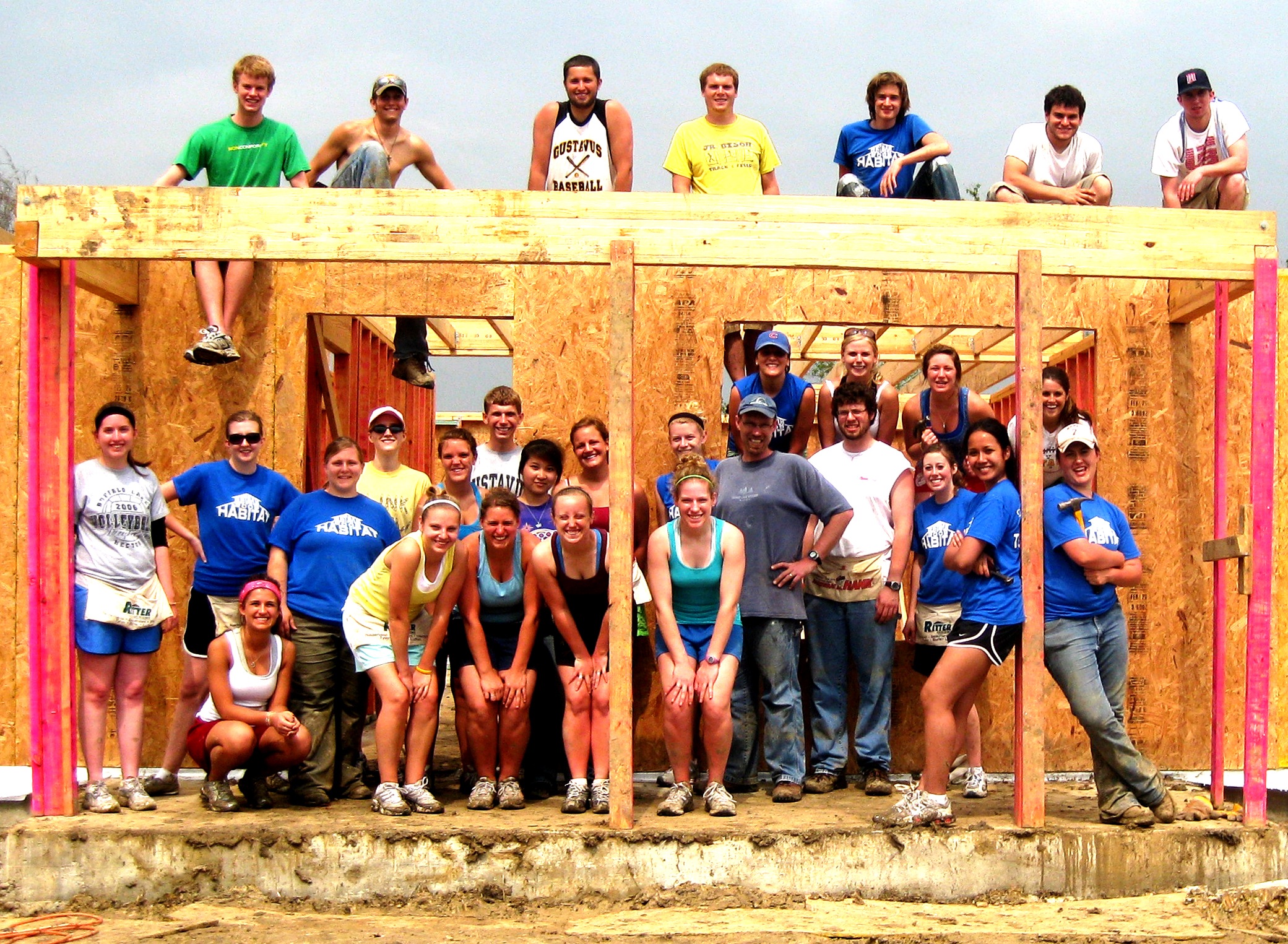An abundance of color, sunny skies and warm weather: what else happens in the spring at Gustavus? The 2011 Spring Break Habitat for Humanity Trip. Every year, Gustavus sends student volunteers to work with Habitat for Humanity, an international, non-profit organization committed to helping members of the community in need of a place to call home. Ninety-two students will be traveling this year to Taos, N.M., Biloxi, Miss. and Bluffton, S.C. over spring break to help build affordable, quality homes for low-income families in those areas.
The trip will be sponsored by Habitat for Humanity’s Collegiate Challenge, an alternative break program designed to give students the opportunity to engage and encourage the community by building these homes in the span of one week.
Habitat for Humanity concerns the partnership that forms between the volunteers and the families involved. Volunteers will be working right alongside the families, who are asked to contribute 500 hours of work on their home. Liz Bowman, a senior sociology and anthropology major, will be leading the Bluffton trip as site coordinator this year. Having been on every Habitat for Humanity trip in her four years at Gustavus, Bowman believes the trips “give spring break a purpose.”
Volunteers are involved in every possible step of the process “from foundation to the very last flower,” Bowman said. Each site will have students collaborating with other volunteer groups on homes in different stages of development.
In addition to building the homes, volunteers will have the opportunity to get to know one another at their individual sites. Over the course of the trip, team members will reflect on the actions of the day, participate in community meals and have free time to engage in sightseeing and activities. “It’s a pretty powerful experience working with students in a different capacity,” Program Director of the Center for Servant Leadership David Newell said. He also said, “I have never been to a site where we weren’t told [by the local affiliates that] we were the hardest working group they had ever seen.”
The program itself is growing as well; more and more applicants apply every year. The destinations themselves have been diversifying. Most trips have been along the Gulf Coast, but more recently, volunteers traveled outside the region to volunteer. The diversity in the trips will give the volunteers at each site a different experience.
While there are many advisors helping to guide the Habitat trips, it is the students who engage in the physical work of building at the sites. The site coordinators, with an advising staff member, are in charge of the safety of the volunteers and act as the daily reflection facilitators. These student leaders also decide what activities to do and means of fundraising. Once the week has come and gone, the volunteers return and create displays of how the trips went and what it meant to them.
Can’t wait to volunteer for next year’s trip? You can still get involved. The Gustavus Chapter of Habitat for Humanity plans events along with the Mankato Habitat group for families in the surrounding area, including St. Peter.
Senior Biochemistry and Molecular Biology and Chemistry Major and Site Coordinator for Taos, N.M., Garrett Clause will be helping to plan the upcoming Act! Speak! Build! Week, on campus in the spring. This student-led event will raise awareness and educate young people on Habitat for Humanity and the housing issues affecting many people. “It’s pretty fun for us to be able to do this,” Clause said.
Such activities as a fun run and the building of a shed on Eckman Mall will help advocate awareness of the program around campus. “It’s not only about learning through the experience about what the program is capable of, but what the students are capable of, as well.”
